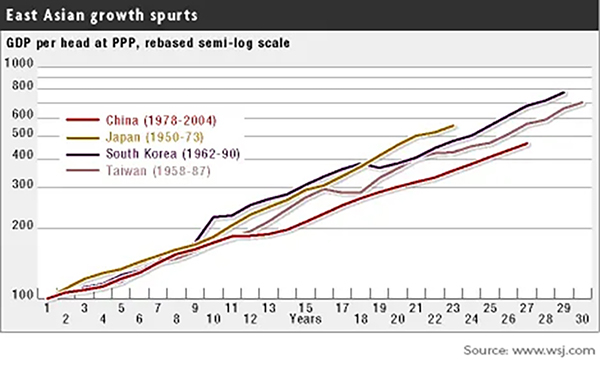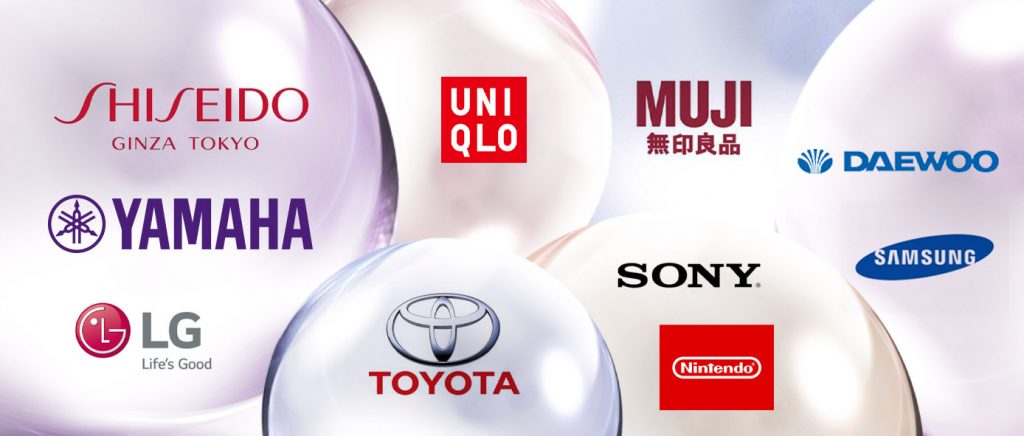Through the past two decades, many companies in China have become multinational organizations with global coverage and are becoming leaders in their specific verticals. A little more than a generation earlier, other Asian giant economies, Japan and Korea, have also experienced the same development and succeeded respectively in the 50-60’s and 60-80’s.

How did Korean and Japanese companies become global successes?
While putting the innovation and products aside for a moment, Chinese companies could relate to the success stories from the neighboring countries especially from cultural and linguistic aspects. Since the 3 countries certainly face the same challenges: Asian languages do not have linguistic roots to English or any other Latin language, and major cultural differences include how to use information effectively.
So how have companies like Sony, Samsung, and Toyota successfully been able to be recognized as successful MNCs rather than being Japanese or Korean companies? And what are the main takeaways for us in China?

English in Asia as the foundation of successful globalization
Even though English is becoming increasingly important in Asia, it is still argued that the proficiency of English is still limited in countries like Japan which is far behind other industrialized nations. In Asian domestic markets, local language plays an important role. But to compete internationally, foreign language skills are fundamental for technical writers and Japanese and Korean companies have fully embraced it.
Manuals and Information must be easy to read
Predominantly strong in B2C products with top brands like Sony, Nintendo, Samsung, Toyota, and LG during that period, the two top Asia economies had the mission to provide consumer facing information leveling up to the international standards. Mostly leading leaders in innovative industries such as portable audio electronics or video game station the user manuals had to deliver information in an intuitive and clear manner.
The Japanese and Korean, with their communication habits, lay a special emphasis on subtlety, whereas the Americans for instance prefer direct and explicit messages. Such differences are closely linked with their distinct interpersonal communication styles.
As a result some of the greatest challenges that companies face were how to deal with the cross-cultural environment and how organizations could effectively utilize the talents of non-Japanese/Korean employees.
Challenges
Non-native English technical writers, despite having a high level of English proficiency, could not meet the best requirements while ensuring fluency and grammatical and linguistic accuracy and this was a problem.
The invisible impact of loss of fluency
In writing, the voice and tone are of paramount importance, especially when advertising or selling a product or service. Spotty translations from non-native speakers can severely detract from company credibility in the same way multiple typos on a resume would give employers pause. Essentially, your target audience can tell if a translation was not done by someone native to their language. Depending on the style of content being written, a translator’s voice is able to clarify the big picture, while honing in on specific details with assurance. As such, the writer’s voice largely influences the overall tone of the piece. Translations by non-native speakers and those forced through online generators lack real intention and urgency. Most of the time, non-native translations result in generalized content that isn’t especially unique or optimized for sales potential, and your clients will not tell you they will simply fade away. This applies to content creation and writing by non-English native.
History proves not to translate from an Asian to English but create the Content in English directly, this will contribute greatly to your brand perception.
Qualified technical writers that are native English speakers
English native technical writers outperform non-native English speakers with an intrinsic ability to localize content, it’s no doubt a fact. A native speaker can ensure effective technical writing in terms of fluency and grammatical and linguistic accuracy. Native speakers are perceived as the best translators, because they maintain proper grammar and are more aware of subtle nuances and cultural and idiomatic expressions. Furthermore, without the proper linguistic training, non-native English speakers will still likely lack the qualifications to write accurately. It is an individual’s specialized training in both the target and source languages, combined with a strong familiarity with the given subject, that contributes more significantly to the quality of writing.
Employing skilled English native writers has proven to have the utmost importance in helping Japanese and Korean companies to rank amongst the top global companies.
It is clear that in addition of being a highly proficient writer, understanding the language and culture of the brand’s country of origin (e.g. Japan and Korea, and now China) brings information development to a much higher level that will resonate to the target audiences in a natural way.
Conclusion
The move to English is critical because it opens up a world of borderless opportunities. Everything else in the globalization journey follows from gaining access to a higher-quality employee pool with at least bi-cultural, if not multicultural, skills.
Language, culture and dynamic image are assets of vital importance. Korean and Japanese companies became global players with the help of inclusive language and culture while representing Asia with its origins. This positioning is reinforced by the native English-native resources without diminishing the importance of home language and culture. English has been used because of the economic edge it offered. It has been aggressively promoted as the language of economic survival and development.
The trend toward English is inevitable—nearly one billion people use it as their first or second language, although different views may claim that the world will be divided, a world with English as the international language, and another one yet to be defined. What are you thought? Feel free to share with us in the comments below.
